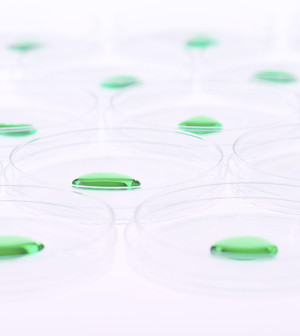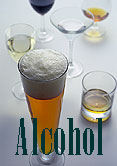- Could Your Grocery Store Meat Be Causing Recurring UTIs?
- Are You Making This Expensive Thermostat Error This Winter?
- Recognizing the Signs of Hypothyroidism
- 10 Strategies to Overcome Insomnia
- Could Artificial Sweeteners Be Aging the Brain Faster?
- Techniques for Soothing Your Nervous System
- Does the Water in Your House Smell Funny? Here’s Why
- Can a Daily Dose of Apple Cider Vinegar Actually Aid Weight Loss?
- 6 Health Beverages That Can Actually Spike Your Blood Sugar
- Treatment Options for Social Anxiety Disorder
Science Finds Way to Block Booze’s Effect — in Worms


Scientists who created worms that can’t get drunk say their research could lead to new ways to treat people with drinking problems.
The research team inserted a modified human alcohol target into the worms. An alcohol target is a nervous system molecule that binds alcohol. There are many types of these molecules.
“This is the first example of altering a human alcohol target to prevent intoxication in an animal,” corresponding author Jon Pierce-Shimomura, an assistant professor in the College of Natural Sciences and Waggoner Center for Alcohol and Addiction Research at the University of Texas at Austin, said in a university news release.
Pierce-Shimomura even suggested that this target could be used to develop a “James Bond”-type spy drug that could allow someone to outdrink an opponent without feeling the effects of alcohol.
An important feature of the modified alcohol target — called the BK channel — used in this study is that the mutation only changes the response to alcohol. It doesn’t affect other important functions such as regulating the activity of nervous system cells, blood vessels, the bladder and the respiratory tract.
“We got pretty lucky and found a way to make the channel insensitive to alcohol without affecting its normal function,” Pierce-Shimomura said.
The research could lead to the development of drugs to treat alcoholism.
“Our findings provide exciting evidence that future pharmaceuticals might aim at this portion of the alcohol target to prevent problems in alcohol abuse disorders,” he said. “However, it remains to be seen which aspects of these disorders would benefit.”
The study was published online July 15 in The Journal of Neuroscience.
Scientists note that research involving animals often fails to produce similar effects on humans.
More information
The U.S. National Library of Medicine has more about alcoholism and alcohol abuse.
Source: HealthDay
Copyright © 2026 HealthDay. All rights reserved.










